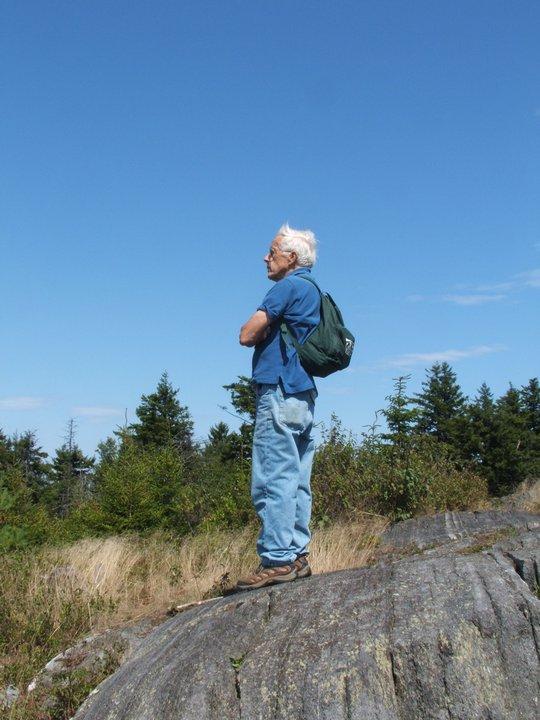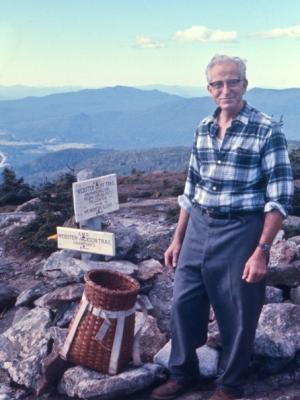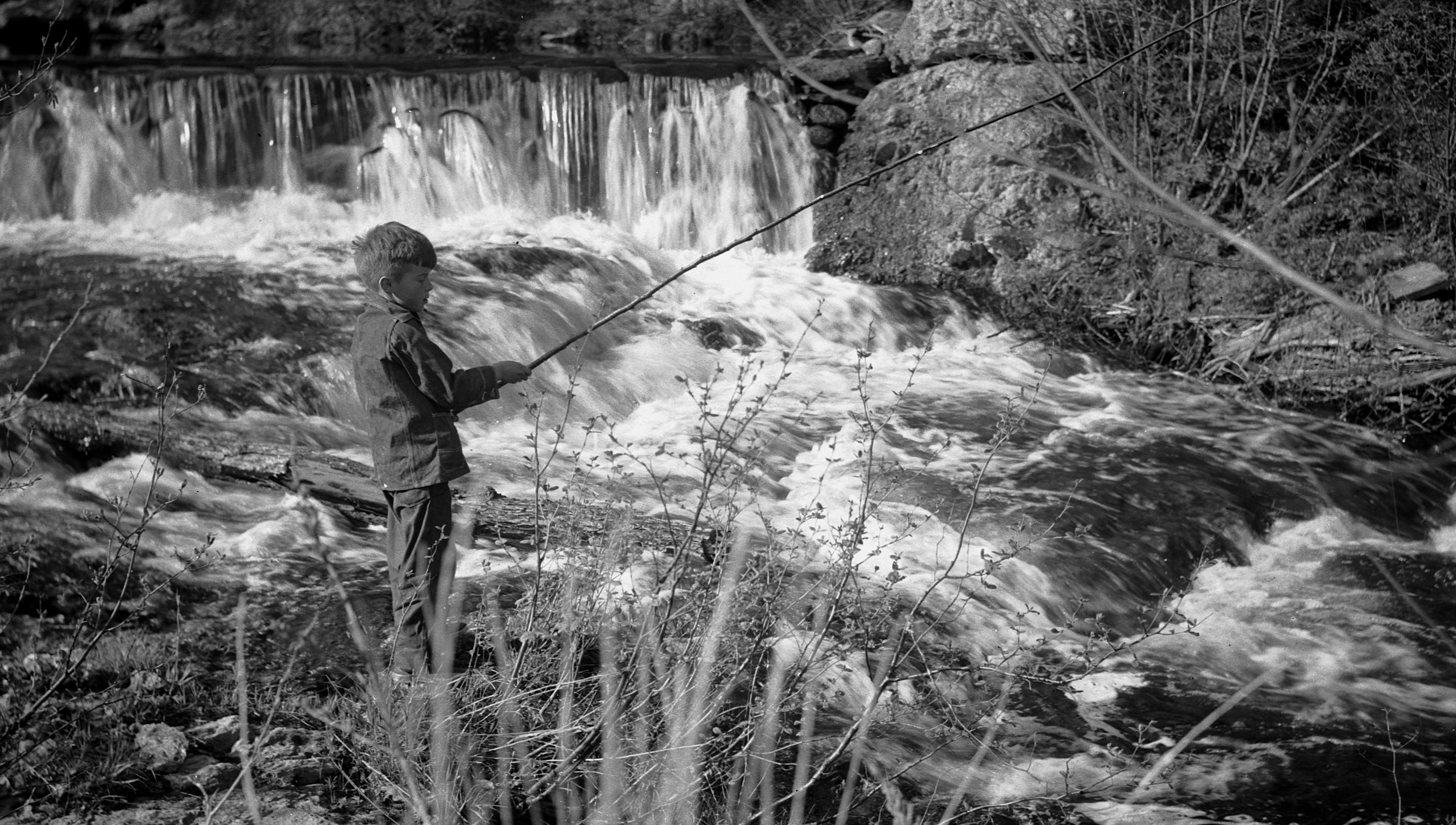David Diehl’s bequest of land pays homage to a cross-generational delight in the outdoors
- Tags:
- Land Conservation

David Diehl takes in the view from Lempster’s Silver Mountain, part of the Forest Society’s Ashuelot River Headwaters Reservation. Diehl hiked all over the world but particularly enjoyed explorations of more local woods and waters. Photo by Sue Lichty.
After spending most of his career in New Jersey and raising a family there with his late wife Catherine, David Diehl knew just what he was looking for when he decided in 1997 to quit city life and spend the rest of his days back in his hometown of Lempster, N.H. His house-hunting strategy reflected his priorities.
He bought the first place he was shown, with hardly a look at the house, said his sister, Emily Fairweather, who has lived in Lempster for most of her life. “I said, ‘Don’t you want to look at the house?’ He said, ‘No, look at the barn and the fields and the woods!’ ”
It was the forests and rural life that called him back to Lempster, along with family ties. From then until the day he died in 2013 at age 83, he spent as much time in the woods as he could, shared his delight in them with family and friends, and worked to conserve the best of them as a member of the Lempster Conservation Commission. And then he took his conservation commitment even further by making sure the forest he had inherited, 40 acres off Lovejoy Road, would be conserved forever by bequesting the land to the Forest Society.
This 40 acres of woods, wetlands and granite ledges was part of the farm where he lived until he was 10, before the Hurricane of ’38 toppled his parents’ sugar bush and helped convince them to move to Pembroke. But they held onto their 200 acres in Lempster. Donating his portion to the Forest Society has much to do with their father Richard Diehl’s involvement in the organization, Fairweather said.

The Lempster farm had been a wedding present from Richard’s wife Madeleine’s foster parents. David’s childhood was surrounded by maple syrup and hay production, talk of forest management, fresh butter from the cow and eggs from the chickens, and the sound of the two-way radio his father kept on whenever he was home to keep in contact with fire towers around the state. David quickly followed in his father’s outdoorsman footsteps, hiking with him to fire towers and fishing down at Dodge Brook. It was a truly rural life – electricity didn’t come to Lempster until David was about 9 years old.

An interest in electrical engineering took David first to UNH and then, after two years in the Army, to New Jersey where he worked for RCA and with his wife Catherine raised their two children, David Jr. and Lisa. New Hampshire remained a favorite get-away destination. When he finally moved back to the stomping grounds of his youth, he was quick to jump into volunteering, joining his sister Emily on the conservation commission and working with the historical society and cemetery committee.
“He always said, ‘Oh, I should have come back sooner!”, Fairweather said.
Lisa Sheffield, David’s daughter who lives in Virginia, said her dad’s enthusiasm for nature was fueled by an insatiable curiosity and appreciation for natural beauty.
“He taught that to my children,” she said.
Walks with him up Pitcher Mountain to pick blueberries or through the woods were full of observations and questions asked out loud of his grandchildren. “He had an interest in everything. He loved to observe … take photos, notice the seasonal changes, ask why, why why… what animal made those marks on that tree?” Sheffield said.
That enthusiasm was caught by her daughter Natalie, who is studying environmental science in college in part “because she spent so much time outside with my dad,” Sheffield said.
Though his adventurous spirit took him all over the world to go hiking, it was the local woods and streams and lakes he particularly enjoyed, said fellow commission member and hiking buddy Sue Lichty, a Forest Society volunteer land steward for the Ashuelot River Headwaters Forest.
“Through the years we explored close to every inch of Lempster, with time spent hiking in Washington, Stoddard, Goshen and more. Most of the time, although not intentional, we ended up on conservation land. We attended any conservation related event we could,” Lichty said. “And each October, when the days were warm and trees in full autumn splendor, we’d venture to Grafton Pond for a paddle.”
Lichty said the value of conservation land was a frequent theme in conversations with David, and his goal for his own land was clear: “He always said he wanted his land to go to the Forest Society.”
